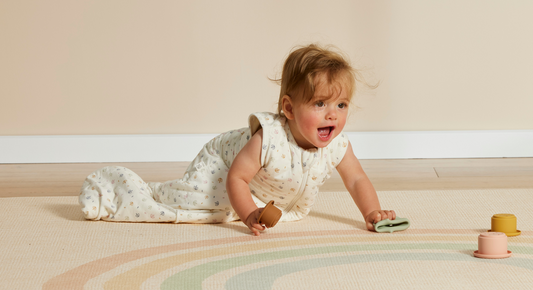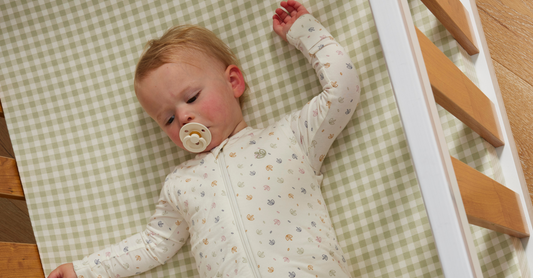
As our babies rapidly grow right before our eyes, so does their sleep journey. With increased neurological development, they become more adept at self-settling. Around the 6-month mark, the comforting techniques we relied on during the newborn stage, like shushing and patting, may lose their effectiveness and even become overly stimulating, potentially causing a disruption in their sleep routine. While they still benefit from reassurance, giving them the space to attempt self-settling becomes a valuable practice at this age. Here are practical tips to support your little one in achieving more restful sleep independently:
1. Optimal Sleep Environment:
Create a sleep environment that is conducive to rest – A dark, cosy, and warm environment will set the stage for peaceful sleep. Introducing white noise can help drown out external disturbances, ensuring an uninterrupted slumber.
2. Consistent Wind-Down Routine:
Establish a consistent wind-down routine infused with positive sleep cues to allow your child to adequately prepare for sleep, a soothing bath, cozy pyjamas, a grow kindly sleeping bag, bedtime stories, and cuddles create a delightful atmosphere to welcome sleep.
3. Age-Appropriate Bedtime:
Aiming to Settle your baby within their natural sleep window, typically between 6-7 pm, when melatonin levels are naturally higher, maximises the success of your settling attempts.
4. Calm But Awake in the Cot:
Following your wind down routine place your baby in the cot while they are calm but still awake. Encouraging the final stages of falling asleep in the cot, rather than in your arms, supports their self-settling efforts and minimises the need for frequent resettling.
5. Consistent Settling Approach:
Implementing a consistent approach to settling and resettling, considering your baby's temperament is important for sleep success! For strong-willed and determined babies, an out-of-room approach may prove effective, while easy going and textbook babies may respond well to an in-room technique, knowing their parent is close by.
Remember, when making changes to your little one's sleep routine, the key is consistency. Children thrive on predictability, so maintaining a consistent approach—regardless of which parent is involved—helps your child understand and embrace their sleep routine more quickly.







